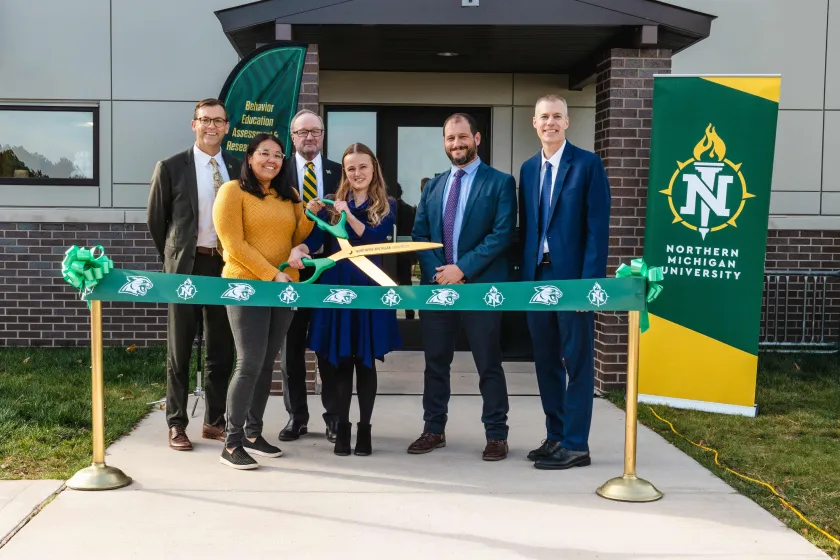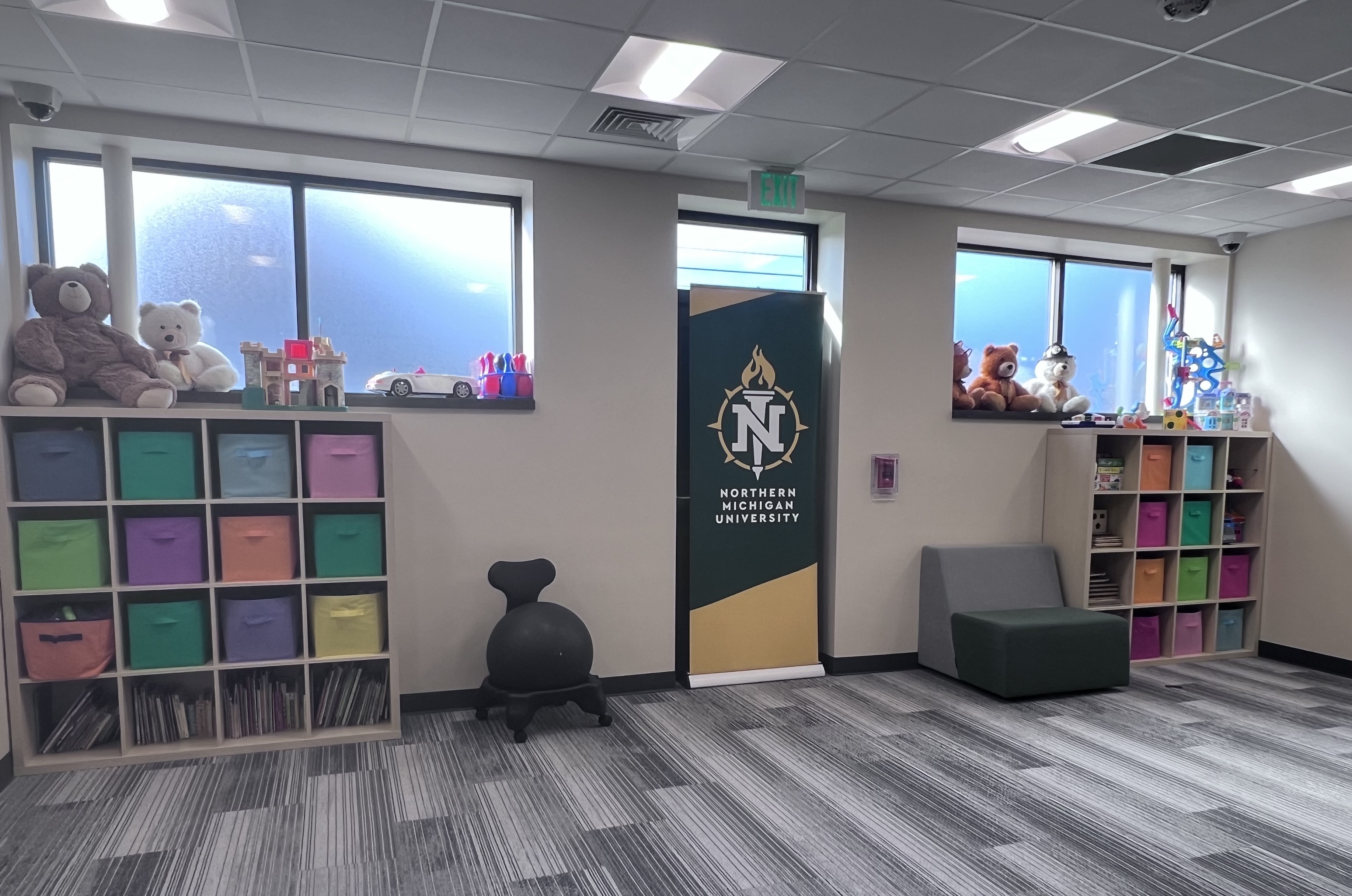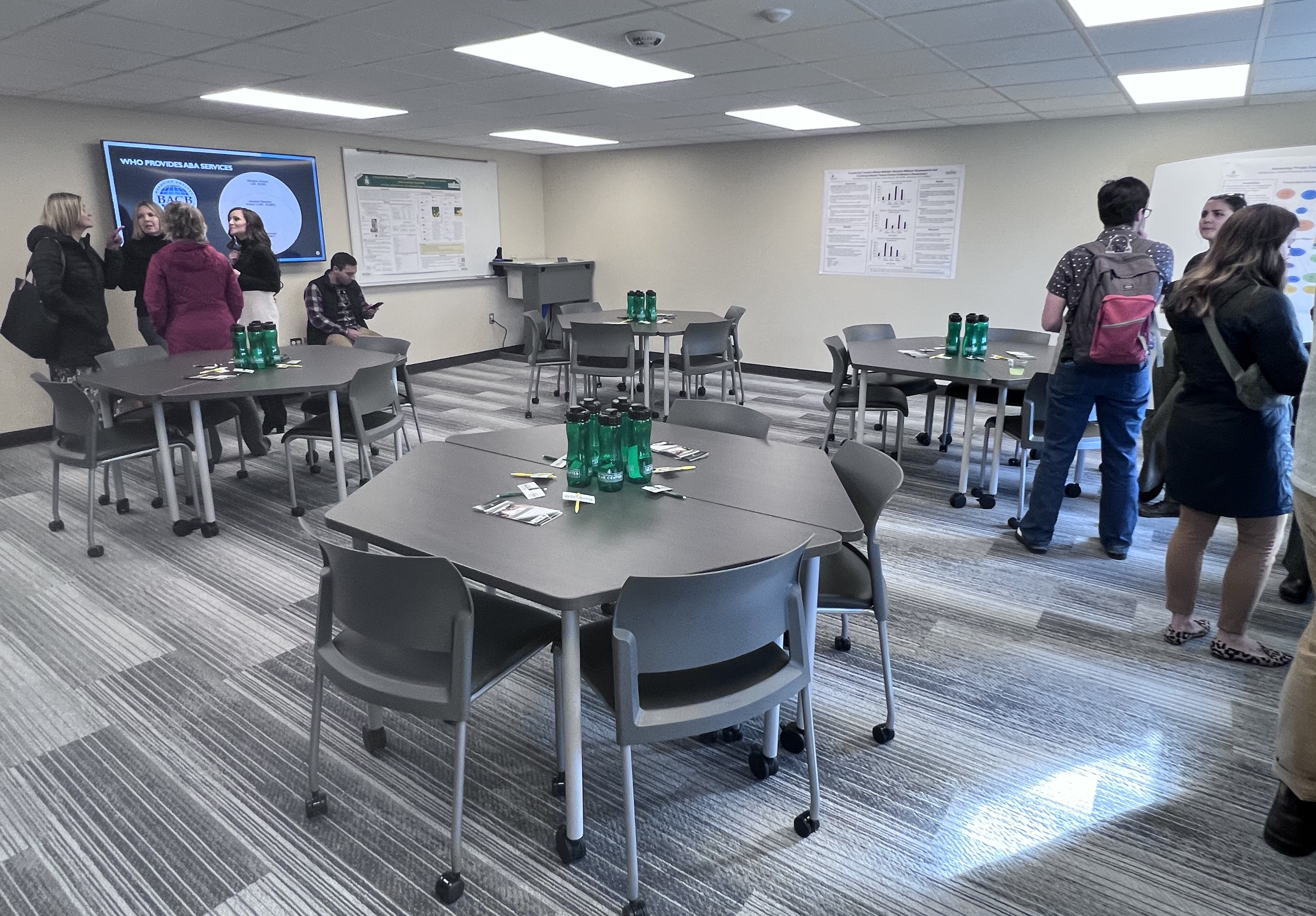Northern Michigan University dedicated the new Presque Isle Avenue location of its Behavior Education Assessment and Research (BEAR) Center on Thursday. The university clinic and research facility provides behavior and learning support to children, adolescents and adults with intellectual/developmental disabilities and/or traumatic brain injury. The $2 million renovation of the two-story building features new and expanded space to accommodate treatment, observation, workroom and classroom functions.
“The BEAR Center's mission is threefold,” said Director Jacob Daar. “It gives our community access to quality behavior analysis services, provides training and professional development to future and current behavior analysts, and facilitates student and faculty research in the areas of clinical practice and management.”
Applied behavior analysis (ABA) is a therapy based on the science of learning and behavior. It helps people to increase or decrease behaviors that are helpful or harmful, and to learn new skills by promoting skills in specific domains of functioning, such as social, communication and academic. ABA uses positive reinforcement to help clients function as independently and successfully as possible, and can be customized to each person's needs.
“The BEAR Center showcases a lot of what makes NMU special,” said NMU President Brock Tessman. “One is the top-notch faculty and staff working here. The cutting-edge research they're doing applies to some of the most significant needs we have in the region, and attracts major external funding. Another thing is that this center captures our philosophy at Northern that immersive learning is oftentimes the best way to dive in. A third thing is talent attraction; this kind of place draws world-class talent to this region and hopefully we can retain that talent. And this also contributes to Northern's role as a workforce development engine in the Upper Peninsula. Most importantly, the BEAR Center provides critical services and resources that were otherwise extremely limited for families in Marquette and the surrounding areas.”
The center was founded in 2016 as part of the NMU Department of Psychological Science's Applied Behavior Analysis (ABA) program. At that time, there were only four Board Certified Behavior Analysts in the Upper Peninsula.
The center's first program, the Early Intensive Language Learning Clinic, opened in 2017, providing verbal behavior therapy for children ages 2-5. Next, it partnered with regional community mental health facilities to support individuals of all ages with adaptive learning and behavioral difficulties. In 2019, work began with local schools to develop enhanced Functional Behavior Assessments and Behavior Support Plans for students experiencing skill deficits and difficult-to-manage behaviors. In 2020, services expanded to include the Comprehensive Behavior Support Program for children of all ages.
Since opening, the BEAR Center has engaged in a variety of initiatives to support professional development and scientific activities of behavior analysts in the U.P. An online Registered Behavior Technician training program was developed and made available to U.P. residents. The center also helped to found the Upper Peninsula Association of Behavior Analysis (UPABA), a non-profit professional network.
The BEAR Center now serves an average of 1,451 service hours per month across clients ranging in age from 2 to 16. Since its start, the center has trained more than 80 students through its graduate and undergraduate programs, and provided more than 92,500 hours of service. It has also been awarded nearly $1 million in grant funding and donor contributions, and generated more than $843,000 in revenue. As of today, there are 35 Board Certified Behavior Analysts in the Upper Peninsula, providing critical behavioral services to U.P. communities.
Zoe Broadus is graduate assistant and a registered behavior technician at the BEAR Center. She came to NMU from Seattle, Wash., to pursue a graduate degree after gaining experience working in the field.
“I moved 2,000 miles to be here and to be a part of this program,” Broadus said. “I knew that I wanted to learn from people who were passionate not just about education, not just about the science, but passionate about bringing ABA into the community as a whole. From the very first meeting that I had with Dr. Daar and Victoria Mattson, it was very clear that the people running this program checked all those boxes. It is so exciting that we have a brand new building, and to see the opportunities that has created for our technicians and the kids we serve to learn in so many new ways.”
In addition to funding from Northern Michigan University, the BEAR Center has received generous support from the Michigan Health Endowment Fund, the Superior Health Foundation, Cleveland Cliffs Foundation, the Ford Motor Company Fund, Fox Motors of Marquette, the NMU Foundation, current and past client families, and community donors. NMU Board of Trustees Chair Steve Young and his wife, Tricia, became financial supporters of the center after Steve learned about it from faculty and toured its former location.
“I immediately saw that the space wasn't close to big enough to support the important work that was going on there,” Young said. “This facility is impressive, and it will enhance the services and research that take place within it. The center is a prime example of how Northern effectively interfaces with the community—not just Marquette, but the entire U.P. That's very important.”
For more information on the center, visit nmu.edu/bear. Learn more about NMU's graduate certificate program in applied behavior analysis here.



